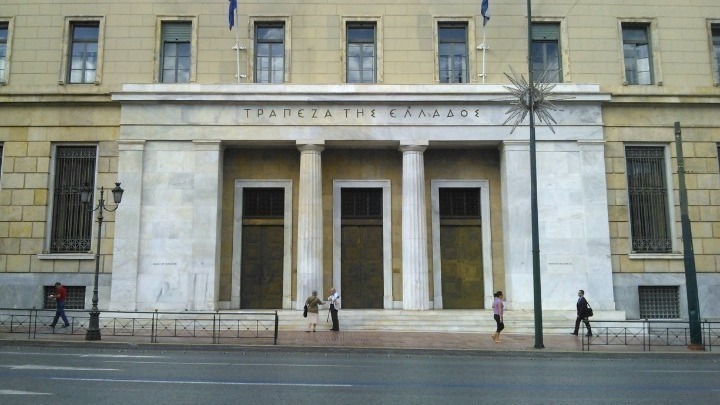BoG: Better growth prospects for the Greek Economy in 2024-2025

A marginal acceleration of growth is forecast for 2024 and 2025 by the Bank of Greece (BoG), though the quantitative estimates remain unchanged.
As stated in the monthly report on the Greek economy, released on Friday, according to the Bank of Greece's projections, in the context of the Eurosystem staff projections from June 2024, growth is expected to accelerate marginally in 2024 and 2025, mainly due to investments, supported by available European resources and private consumption.
However, the BoG maintains its quantitative forecasts, estimating that Greece’s GDP will grow by 2.2% this year, 2.5% in 2025 and 2.3% in 2026.
Regarding inflation, the Bank of Greece expects a further slowdown in 2024 with inflation falling to 3%, due to the continued decline in food prices, non-energy industrial goods and services.
As for fiscal policy, the Bank of Greece estimates that the fiscal stance for 2024 is expected to be slightly expansionary, due to increased investment expenditure financed by the Recovery and Resilience Facility (RRF).
The Bank of Greece continues to identify risks for the economic recovery linked to a worsening of the geopolitical crises in Ukraine and the Middle East as such developments increase uncertainty and place upward pressure on energy prices.
The Bank of Greece report observes that economic activity continued to expand at a satisfactory pace in 2024, specifically by 2.3% y-o-y in the second quarter, outperforming the euro area average. Easing energy prices drove down inflation at the end of 2022 and throughout 2023 to 3% in 2024.
Regarding the housing market, it is noted that residential prices continued to increase at an accelerating pace in 2022 and 2023.
Labour market developments remained positive, with employment rising. The current account deficit narrowed significantly in 2023, after widening in 2022, but deteriorated in the first half of 2024.
The primary fiscal outcome for 2023 was a surplus of 1.9% of GDP, significantly larger than the 1.1% target, due to higher tax revenues and lower primary spending.
The debt-to-GDP ratio decreased by 10.8 percentage points compared to 2022, to 161.9% of GDP, due to economic growth and elevated inflation.
After moderating significantly during 2023, corporate bank credit growth has rebounded strongly. The growth rate of household deposits slowed in 2023-2024, under the negative impact of high inflation and the substitution of deposits with other saving options.
As for interest rates, it is noted that after a significant rise since the second half of 2022, bank lending rates remain high.
Government bond yields and spreads have retreated as the impact of higher interest rates was tempered by Greece’s sovereign credit rating upgrades to Investment Grade.

